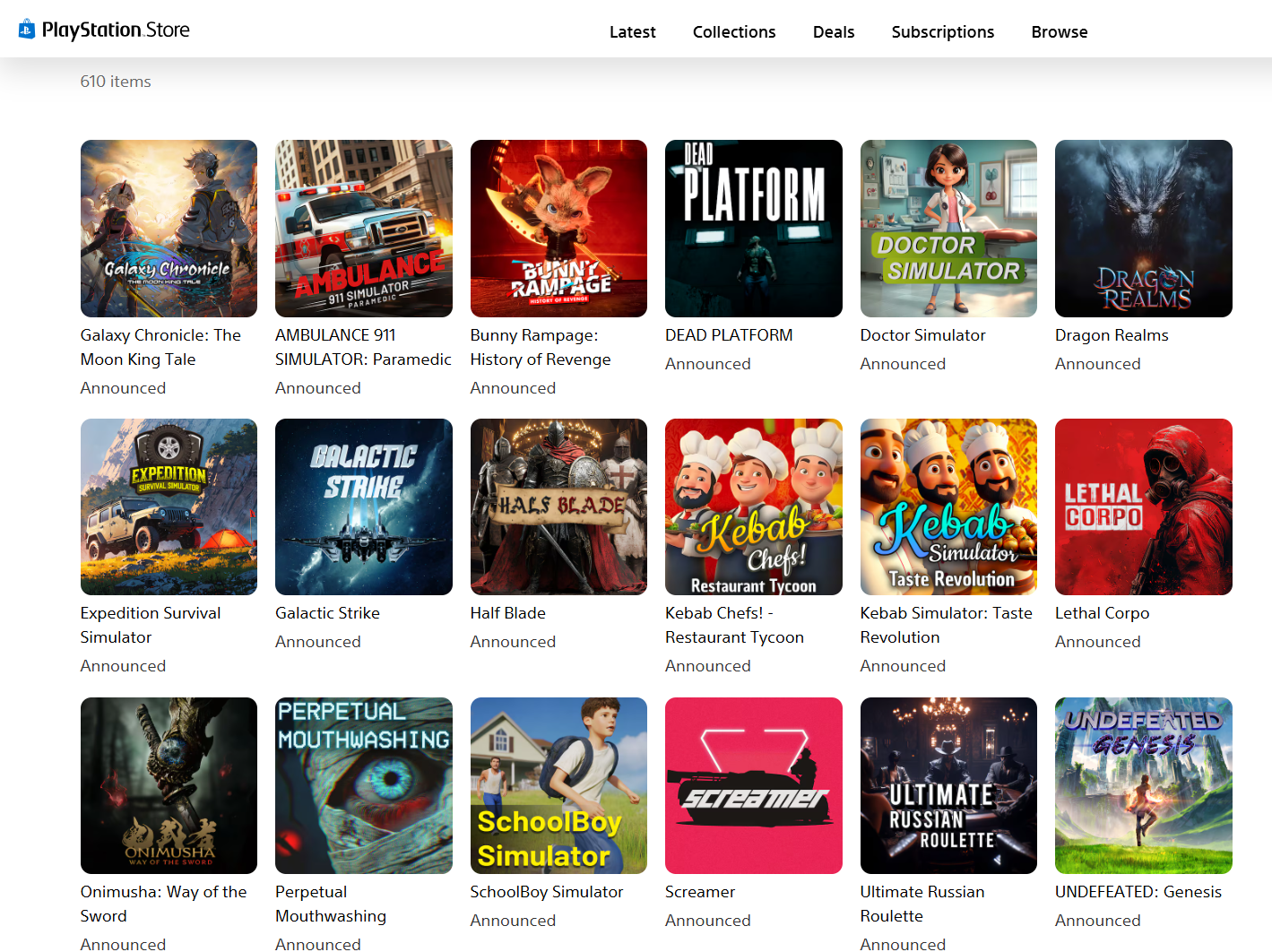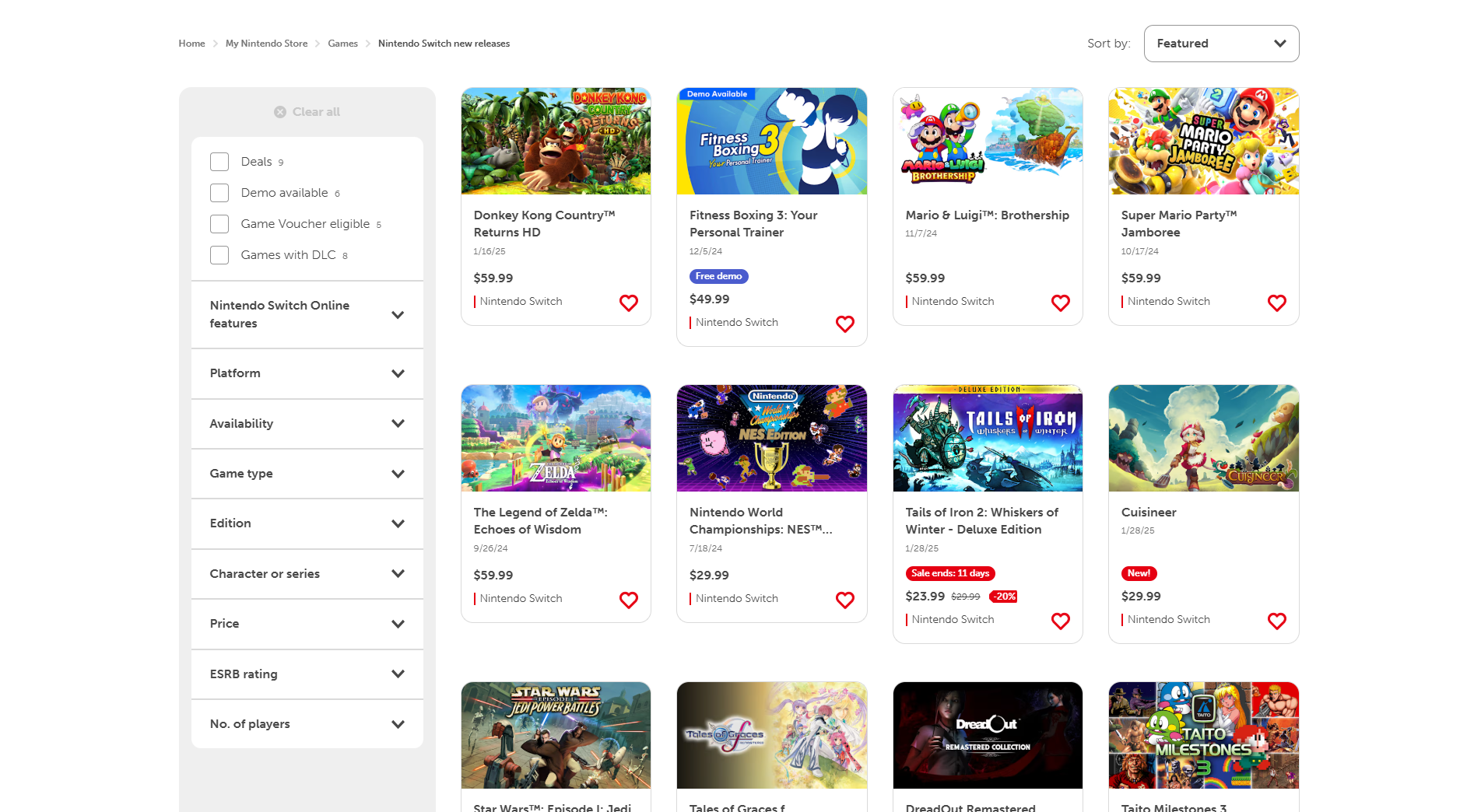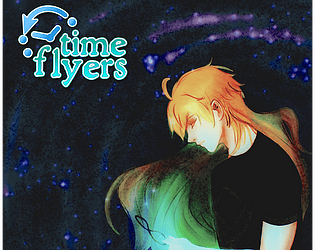The PlayStation Store and Nintendo eShop are experiencing an influx of low-quality games, often described as "slop," raising concerns among users. These games, frequently simulation titles, utilize generative AI for misleading marketing materials and often bear striking resemblance to popular games, sometimes even copying names and themes. This issue, initially prominent on the eShop, has recently spread to the PlayStation Store, particularly affecting the "Games to Wishlist" section.
The problem extends beyond simple "bad" games; it's a deluge of similar, low-effort titles overshadowing higher-quality releases. These games often feature poor controls, technical glitches, and limited gameplay, failing to meet the expectations set by their marketing. A small number of companies appear responsible for this mass production, making them difficult to identify and hold accountable due to a lack of public information and frequent company name changes.
User frustration has led to calls for increased storefront regulation. The Nintendo eShop's performance issues seem exacerbated by the sheer volume of these games. This investigation explores the reasons behind this phenomenon, comparing the experiences of PlayStation, Nintendo, Steam, and Xbox stores.
The Certification Process: A Key Difference
Interviews with eight game development and publishing professionals (all requesting anonymity) shed light on the game release process across the four major storefronts. The process generally involves initial platform approval, followed by form completion detailing game specifications and technical elements. Certification ("cert") then verifies compliance with platform requirements, legal standards, and ESRB ratings. While platform holders emphasize age rating accuracy, the certification process primarily focuses on technical compliance rather than quality assurance. Developers often receive limited feedback on submission rejections, particularly from Nintendo.
Store Page Review: A Variable Process
Platform holders require accurate game representation in store page screenshots, but enforcement varies. While Nintendo and Xbox review page changes before launch, PlayStation conducts a single check near launch, and Valve reviews only the initial submission. The level of diligence in verifying the accuracy of game descriptions and screenshots differs significantly across platforms. Consequences for misleading materials typically involve removal of the offending content, rather than harsher penalties. Importantly, none of the console storefronts have specific rules regarding generative AI use in games or marketing materials, although Steam requests disclosure.
Why the Discrepancy?
The disparity in "slop" across platforms stems from several factors. Microsoft's game-by-game approval process contrasts with Nintendo and Sony's developer-based approach. This makes Microsoft's store less susceptible to mass submissions of low-quality games. Nintendo's approval process, in particular, has been described as easier to circumvent, allowing for a rapid influx of low-effort titles. Tactics such as continuous, overlapping sales periods further exacerbate the issue by keeping these games prominently displayed. The unorganized nature of Nintendo's new releases section on the console app, compared to the web browser version, also contributes. While Steam has its share of low-quality games, its robust search and filtering options and high volume of releases mitigate the problem from a user perspective.
The Role of Generative AI
While generative AI is used in some of these games' marketing materials, it's not the primary cause. The games themselves are still developed by humans, and AI is not yet capable of creating complete, functional games. Xbox, despite being relatively unaffected by the "slop" problem, is considered the least likely to discourage the use of generative AI due to its investment in the technology.

Calls for Action and Concerns
Users have urged Nintendo and Sony to address the issue, but neither company responded to requests for comment. Developers express pessimism about significant improvements, particularly regarding Nintendo's eShop. While Nintendo's web browser-based eShop is considered functional, the console app remains problematic. Sony has taken action against similar issues in the past, suggesting potential future intervention. However, overly aggressive filtering, as demonstrated by the "Better eShop" project, risks unfairly targeting legitimate games. Concerns exist that stricter regulation might inadvertently harm quality software. Ultimately, the challenge lies in balancing the need to curb low-quality releases with the avoidance of overly restrictive policies that could stifle independent developers.































